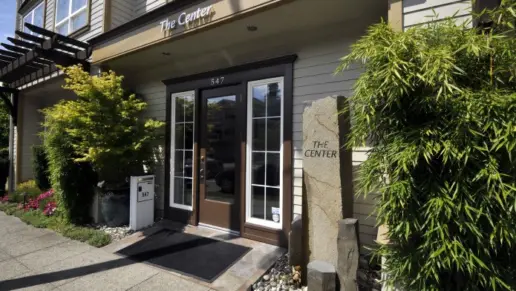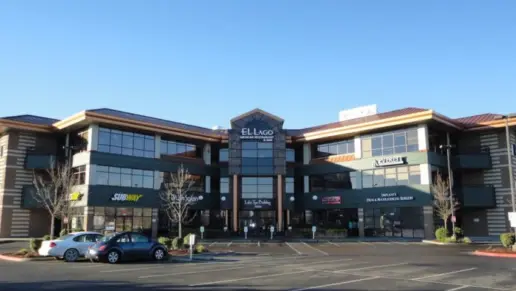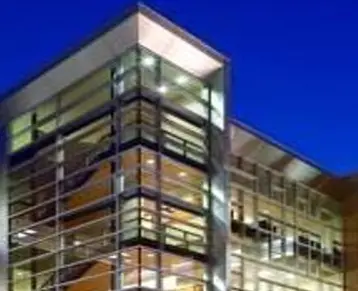Triumph Treatment Services has played an important role in my recovery, I never thought that sobriety could be possible for me, I made incredible changes in my life. The staff are very good people, they care about the patients and put the heart to their work.
About Triumph
Inspiration – Triumph Treatment Services, also called Casita, is located in Yakima, Washington. They offer a women’s inpatient, intensive drug and alcohol rehabilitation treatment program. They also treat co-occurring disorders and have outpatient programs available. They offer men’s substance use disorder treatment, both inpatient and outpatient, at the James Oldham Treatment Center which is separate from Casita. For your convenience, they accept private insurance from many major insurance providers. They also take Medicaid and some public insurance.
The women’s program treats women of all ages and operates on the premise that separating substance use disorder and mental health is impossible. They offer treatment that is client centered and tailored to the individual while addressing all of your needs: mind, body and spirit.
You’ll live in a dorm style environment with closet space and bedding provided. You’ll see healthcare staff and meet with onsite substance use disorder counselors. You’ll get the support you need for any dual diagnosis such as depression, anxiety, schizophrenia or bipolar disorder.
The programs are evidence based, and you’ll learn the 12 Step model for recovery. Substance use is often a reaction to trauma or other mental health disorders. Counselors will help you get to the root of your mental health issues, such as trauma or sexual abuse. If appropriate, they can offer you medication management.
There are also peer support services where peers are mentors who offer hope that you can successfully manage your substance use and mental health issues. If you’re struggling in the program they’ll consider giving you an extension. Everything is based on your individual needs.
Latest Reviews
Rehab Score
Other Forms of Payment
Medicaid is a state based program that helps lower-income individuals and families pay for healthcare. Medicaid covers addiction treatment so those enrolled can use their coverage to pay for rehab. When a program accepts Medicaid the client often pays very little or nothing out of their own pocket.
Private insurance refers to any kind of healthcare coverage that isn't from the state or federal government. This includes individual and family plans offered by an employer or purchased from the Insurance Marketplace. Every plan will have different requirements and out of pocket costs so be sure to get the full details before you start treatment.
Self-pay involves paying for treatment out of your own pocket. You can use savings or credit, get a personal loan, or receive help from family and friends to fund your treatment. If you don't have insurance or your insurance plan doesn't cover a specific program, self-pay can help ensure you still get the care you need.
Addiction Treatments
Levels of Care
Treatments
The goal of treatment for alcoholism is abstinence. Those with poor social support, poor motivation, or psychiatric disorders tend to relapse within a few years of treatment. For these people, success is measured by longer periods of abstinence, reduced use of alcohol, better health, and improved social functioning. Recovery and Maintenance are usually based on 12 step programs and AA meetings.
Effective drug rehab in Washington integrates care for the whole person, offering comprehensive solutions to addiction. Treatment methods address mental, physical, and relational aspects of substance abuse.
A combined mental health and substance abuse rehab has the staff and resources available to handle individuals with both mental health and substance abuse issues. It can be challenging to determine where a specific symptom stems from (a mental health issue or an issue related to substance abuse), so mental health and substance abuse professionals are helpful in detangling symptoms and keeping treatment on track.
Opioid rehabs specialize in supporting those recovering from opioid addiction. They treat those suffering from addiction to illegal opioids like heroin, as well as prescription drugs like oxycodone. These centers typically combine both physical as well as mental and emotional support to help stop addiction. Physical support often includes medical detox and subsequent medical support (including medication), and mental support includes in-depth therapy to address the underlying causes of addiction.
Programs


Clinical Services
Cognitive Behavioral Therapy (CBT) is a therapy modality that focuses on the relationship between one's thoughts, feelings, and behaviors. It is used to establish and allow for healthy responses to thoughts and feelings (instead of unhealthy responses, like using drugs or alcohol). CBT has been proven effective for recovering addicts of all kinds, and is used to strengthen a patient's own self-awareness and ability to self-regulate. CBT allows individuals to monitor their own emotional state, become more adept at communicating with others, and manage stress without needing to engage in substance abuse.
Dialectical behavior therapy (DBT) is a highly structured form of therapy that teaches skills to help participants change negative thoughts and behaviors. Applying a philosophy of acceptance and change, you'll learn and practice these skills to break unhealthy patterns and establish healthy ones.
Group therapy is any therapeutic work that happens in a group (not one-on-one). There are a number of different group therapy modalities, including support groups, experiential therapy, psycho-education, and more. Group therapy involves treatment as well as processing interaction between group members.
In individual therapy, a patient meets one-on-one with a trained psychologist or counselor. Therapy is a pivotal part of effective substance abuse treatment, as it often covers root causes of addiction, including challenges faced by the patient in their social, family, and work/school life.
Couples therapy can help a couple navigate their differences. By learning powerful interpersonal skills in therapy, the couple can work together to overcome challenges and change the direction of their relationship.
Research clearly demonstrates that recovery is far more successful and sustainable when loved ones like family members participate in rehab and substance abuse treatment. Genetic factors may be at play when it comes to drug and alcohol addiction, as well as mental health issues. Family dynamics often play a critical role in addiction triggers, and if properly educated, family members can be a strong source of support when it comes to rehabilitation.
Life skills training in Washington involves relearning how to manage daily living. It boosts your abilities and confidence so you can overcome challenges both big and small, without returning to substance use.
Amenities
-
Private Setting
Staff
Chair, BOD
Vice Chair, BOD
Treasurer, BOD
Secretary, BOD
Contact Information
120 S 3rd St
Yakima, WA 98901


